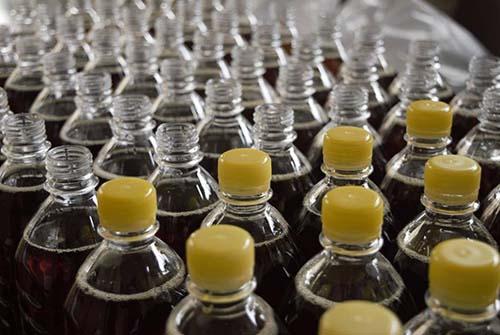
According to Eurostat, Europeans generated 34.6 kg of plastic packaging waste in 2020, of which only 13.0 kg were recycled. This leaves 21.6 kg per person destined for landfills, incinerators, or the environment.
During their lifespan, two LIFE projects aimed to tackle waste from packaging and shoe manufacturing - LIFE RECYPACK and LIFE ECOTEX respectively.
LIFE RECYPACK collected and recycled commercial plastic packaging waste (CPPW) from commercial centres, shops, and large chain distribution companies. The project operated two recycling facilities in Hungary and Spain, producing recycled plastics to manufacture new plastic products. Key to the project was the development of four processes in Spain and Italy. The first process collected CPPW from commercial shopping centres. The second collected CPPW from small shops, with 42 shops participating. The third set up a reverse logistics programme where larger commercial distribution companies provided plastic waste for recycling. The fourth adapted existing waste collection sites and provided incentives to those who deposited CPPW.
The third process was the most successful, with a reverse logistics agreement signed between Spanish COMELSA, electronics firm Milar, and recycling company TRAXPO. Seventy stores provided over 21 tonnes of plastics for recycling. The waste was sold to TRAXPO, transformed into a commercial product, and used for making new plastic products.
In a similar circular economy process, LIFE ECOTEX took a closer look at polyester, the second largest family of plastics found in clothing and footwear. Shoemaking processes create wasted materials such as polyester mixed with other materials and glues. These are hard to separate in traditional mechanical recycling methods; and until LIFE ECOTEX, landfill or incineration were the primary solutions. The project developed an innovative system to recycle these materials so they could be used in other industries such as packaging.
LIFE ECOTEX applied a chemical de-polymerisation process to the polyester waste. This recycled the polyethylene terephthalate, known as PET and produced a chemical called bis (2-hydroxyethyl) terephthalate (BHET). Once purified, the BHET was re-polymerised to be used in shoemaking and manufacturing. The recycled PET was used to make polyester stable fibre (PSF), which was reintroduced to the market for footwear manufacturing, and packaging.
During its operation, LIFE ECOTEX treated 550kg of waste; produced more than 350kg of purified BHET; manufactured 300kg of renewable PET; and produced 800kg of PSF to be used. And per tonne of PET produced, the project saved 1.04 tonnes of greenhouse gases emissions. Around 330 shoe insoles and 24 insulations panels have been created by this circular economy process.
The 15th edition of the European Week of Waste Reduction (EWWR), taking place from 18 to 26 November, has packaging as its thematic focus. This international campaign seeks to raise awareness about the significant environmental impact of packaging, emphasising its pivotal role in the waste generated during the era of e-commerce. The EWWR is dedicated to offering insights, ideas, and support to encourage more sustainable consumer behaviour.
More details:
LIFE RECYPACK and LIFE ECOTEX are aligned to a number of EU directives including Waste Framework Directive, Waste and Repealing Certain Directives, Directive on Packaging and Packaging waste; Closing the Loop - An EU Action Plan for the Circular Economy; and Landfill Directive.
Details
- Publication date
- 23 November 2023
- Author
- European Climate, Infrastructure and Environment Executive Agency

